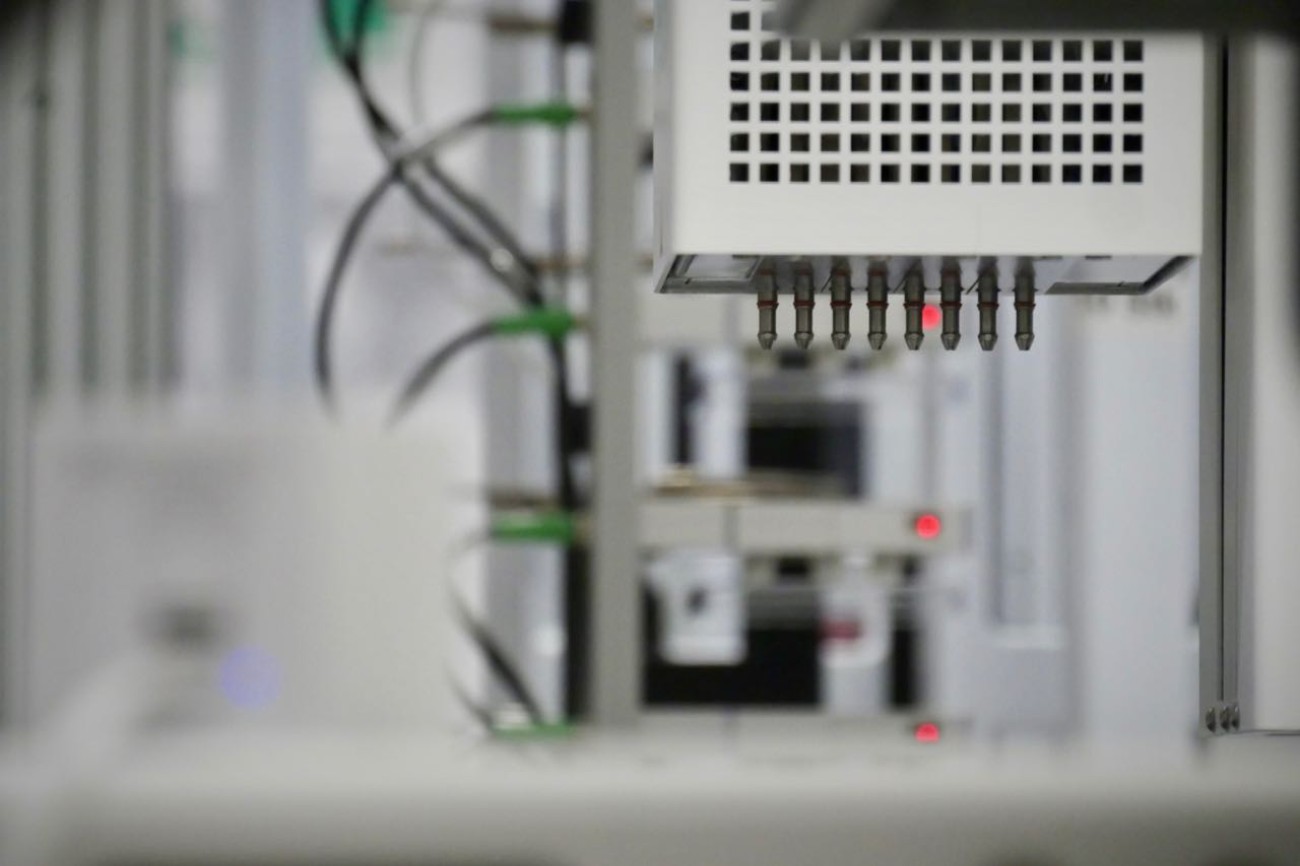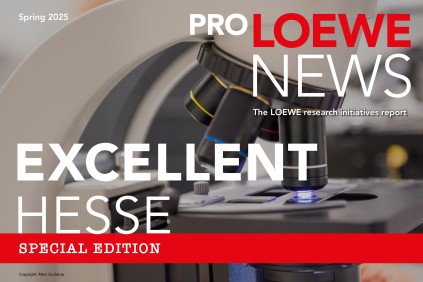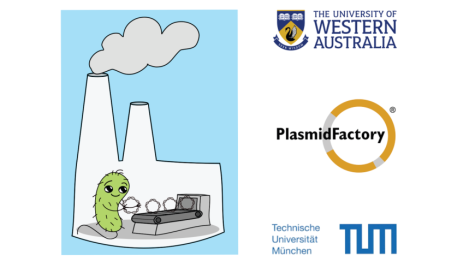Centre for Synthetic Biology
With the launch of the Centre for Synthetic Biology, TU Darmstadt commits to synthetic biology as a key research focus. The interdisciplinary centre integrates expertise from the faculties of biology, chemistry and electrical engineering and information technology, material sciences and physics, mechanical engineering and social sciences.

Synthetic biology is an engineering approach to equip biological cells with new molecular properties and features. In contrast to conventional biotechnology, this functionality is achieved by combining well-characterised and standardised components at the molecular level. New molecular biology methods, such as versions of the CRISPR gene scissors, are used in the process. Simultaneously, our ability to design RNA molecules and proteins for specific targets is rapidly evolving. In an abstract sense, synthetic biology thus combines defined elements to create a novel technological substrate that allows functional realisation for highly diverse purposes. The possible applications cover a very wide range: intelligent biosensors for in vitro or point-of-care diagnostics, the production of complex chemical compounds, the production of optimised proteins, e.g. enzymes, new (biocompatible) materials, new regulatory mechanisms for more robust plants and microorganisms and the generation of electrical energy.
Within the Centre research is distributed over 3 levels:
1. molecular level (DNA, RNA, protein, nanopores)
2. cellular level (gene regulatory circuits, sensing, metabolic engineering)
3. multicellular level (synthetic organs, 3D-bioprinting)
Apply now for the Graduate School Life Science Engineering
Recommended external content
We have selected external content from YouTube for you and would like to show it to you right here. To do this, you must reveal it with one click. You can hide the external content at any time with another click.
I agree to external content from YouTube being shown to me. This may result in personal data being transmitted to third-party platforms. You can find more information in our Privacy Policy.
More information can be found here!
Engineering molecular sensors
Recommended external content
We have selected external content from YouTube for you and would like to show it to you right here. To do this, you must reveal it with one click. You can hide the external content at any time with another click.
I agree to external content from YouTube being shown to me. This may result in personal data being transmitted to third-party platforms. You can find more information in our Privacy Policy.
The LOEWE research clusters CompuGene and iNAPO were essential to prepare the ground for the launch of the Centre for Synthetic Biology. CompuGene is dedicated to research on new methods for the generation of genetic logic circuits with the help of computer models. The focus of iNAPO is the investigation of ion-conducting nanopores and their application in biosensorics.














